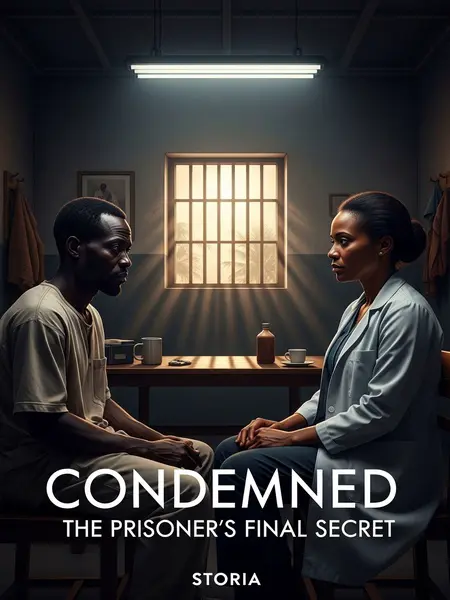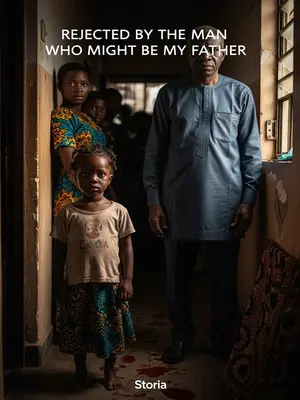Chapter 5: The Flowerpot Window
Ifedike’s narration (2):
I watched the execution ground every day. My mother knew—that was her intention.
In fact, it wasn’t that my mother found a job at the assembly plant and so we moved here. It was the other way around.
My mother chose to work here because she knew there was an execution ground and wanted us to live here.
The assembly plant quarters was already our third home.
As a small child, I was smart and well-behaved, loved by everyone, my parents’ pride.
But from primary two, my character started to darken.
I began bullying classmates. At first, it was just locking someone in an abandoned store and watching people search for them; by primary five, I beat a classmate so badly he landed in hospital with a concussion.
My parents apologised over and over, spent plenty of money. Parents and teachers kept trying to correct me, but I just couldn’t change.
My mother cried every night, saying, “You used to be so good. Why did you turn out like this? Did your father and I do something wrong?”
Every time the teacher called my father, he’d come home and flog me with a belt, then make me stand all night as punishment. The last time, he beat me so hard I curled up on the floor, unable to move.
But at one point, when he met my eyes, he stopped. He suddenly got scared and said that one day, I would kill him.
Not long after, my father left and never came back.
In primary five, I was expelled. Because of my bad reputation, no other school nearby would take me.
My mother had no choice but to take me away from that area.
She remembered the old Igbo story—"Nne ji nwa, na-echeta ihe mere nwata." A mother moves house even if it means sleeping where spirits roam, just for her child’s sake. So she took me to live near a university in the city, hoping I’d pick up better habits from a more civilised environment.
At the new school, teachers liked me because my grades were good and I acted polite and obedient. My mother thought I’d finally changed and relaxed.
But it was all fake—I was just good at pretending.
It didn’t last two years. In JSS1, I almost colluded with some street boys to kidnap the university girl next door.
The girl’s boyfriend refused to let it go and came to my school to cause trouble. The teacher called me to face him; I had a knife hidden in my pocket and nearly caused a disaster.
My mother knelt in the principal’s office, begging for mercy.
The principal was firm, saying I was unteachable and poorly raised, and that a child this wicked would surely become a criminal. The school couldn’t risk it. He told my mother to handle it herself.
So I was expelled again.
My mother fell seriously ill, and after recovering, she seemed clearer in her mind.
She took me and moved again, this time to here.
The staff building at the far west of Ibeku Assembly Plant, right beside the execution ground, was avoided by other workers’ families.
Anyone unlucky enough to get such a “scenic room” would board up the window on that side to avoid seeing anything disturbing.
My mother did something similar, but she used old newspapers—blocking the window but not the light.
And a window covered with newspaper could still be opened.
She even put a flower rack outside my window and placed a red clay pot there to grow ogiris. Every morning, she’d go out to water or trim them, head down, eyes averted, never daring to look out into the distance.
But she left the window slightly open for fresh air, so I could see the execution ground as soon as I woke up.
I understood my mother’s thinking. She knew positive influence hadn’t worked, so she tried the opposite—letting me see bad people being shot, hoping I’d feel fear and learn to control myself, to become a good person.
At first, I was truly shocked by the executions and became a good student again.
But only I knew the pain inside. I forced myself to suppress the urge to do evil, and it was so painful I began to self-harm.
My arms and legs were full of self-inflicted scars, and my mind was on the edge.
It’s not easy to hold yourself back from crime.
Dr. Folarin, look.
His hands shook as he tried to roll up his sleeve, the handcuffs biting into his wrist. Unable to do it with his hands, Ifedike bent down and used his teeth, like a desperate animal, to pull up the cloth. Beneath, his skin was marked with a lattice of faded scars—some straight, some jagged, all old.
“Looks like you really suffered back then,” I said, my voice low. The memory of my own mother flashed in my mind—her hands hard with soap and years, her eyes that saw too much. “Your mother, just to reform her wayward son, moved near the execution ground. That one pass even those mothers wey dey move house for their pikin.”
Ifedike said, “But that only made me more repressed. Forcing someone to change like this—doesn’t it just twist their mind even more?”
“You’re right,” I hesitated, “but still, don’t try to use this as an excuse for mental illness. You don’t have those issues, and you’ve already received the fairest judgment. If you hope to overturn the verdict with this, it’s not possible.”
Ifedike said, “I’m just stating facts.”
I shook my head. To be honest, whether it’s true or not, I can’t confirm. I only know your crimes are clear. In your last moments, think well about what you’ve done.
“Zachary Ozo’s family was once happy. Because of a few words with Zachary, you bore a grudge and killed him, shattering a happy family. After coming to prison, you made no effort to change and committed another serious crime—again over a few words, beating your cellmate Musa Danladi to death. There’s no excuse for your crimes. You can’t bear the weight of two lives so lightly.”
Ifedike said, “Just a few words, and I killed two people. My emotional management must be terrible. Dr. Folarin, isn’t that so?”
I was speechless. My pen hovered uselessly above my notebook. But the walls weren’t closing in on Ifedike. It was me they were trapping.











